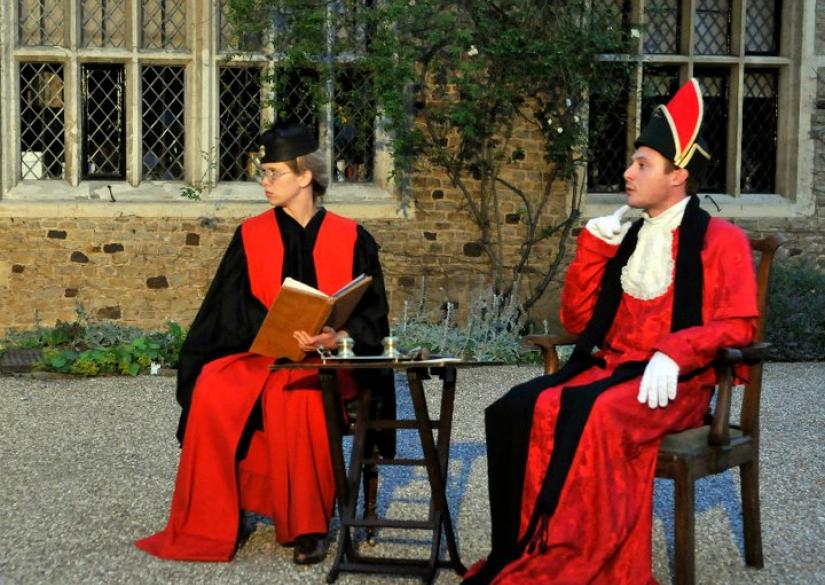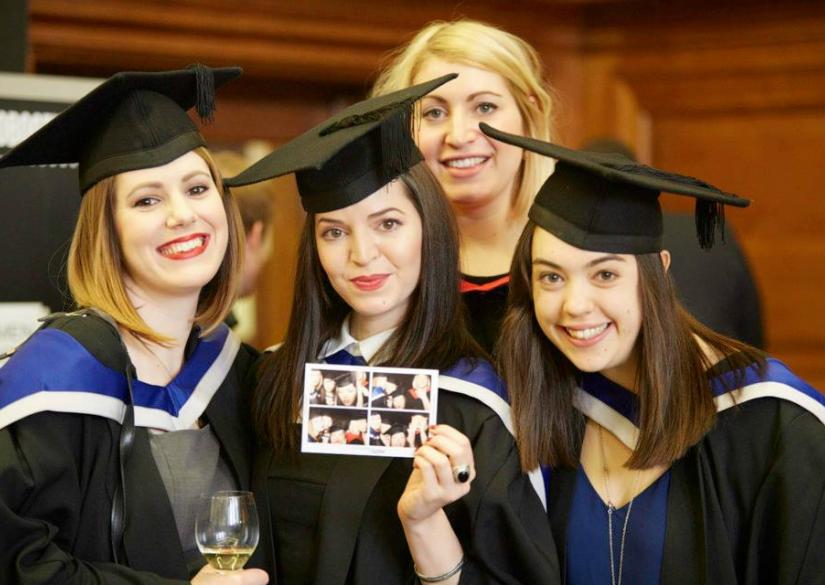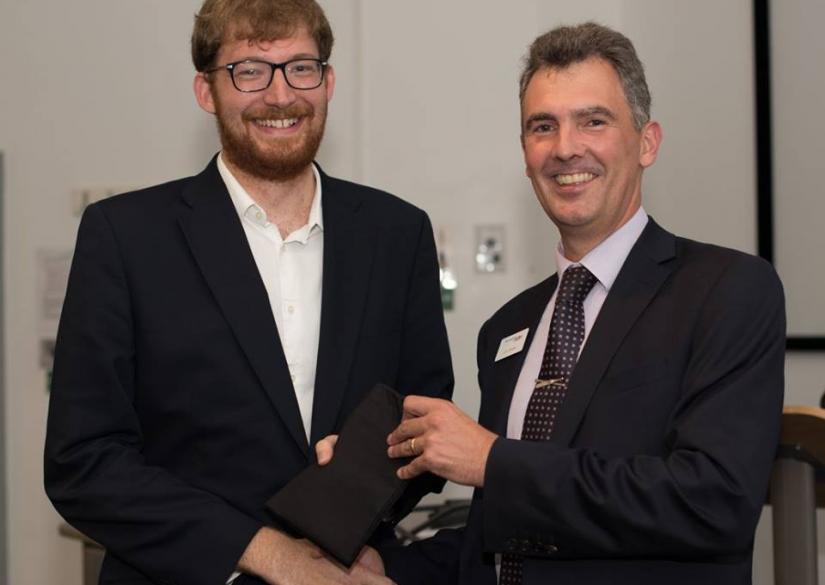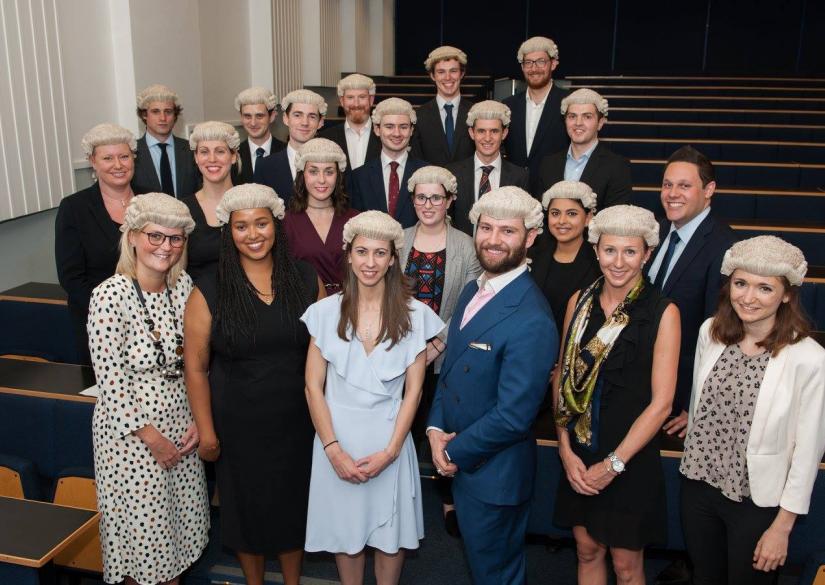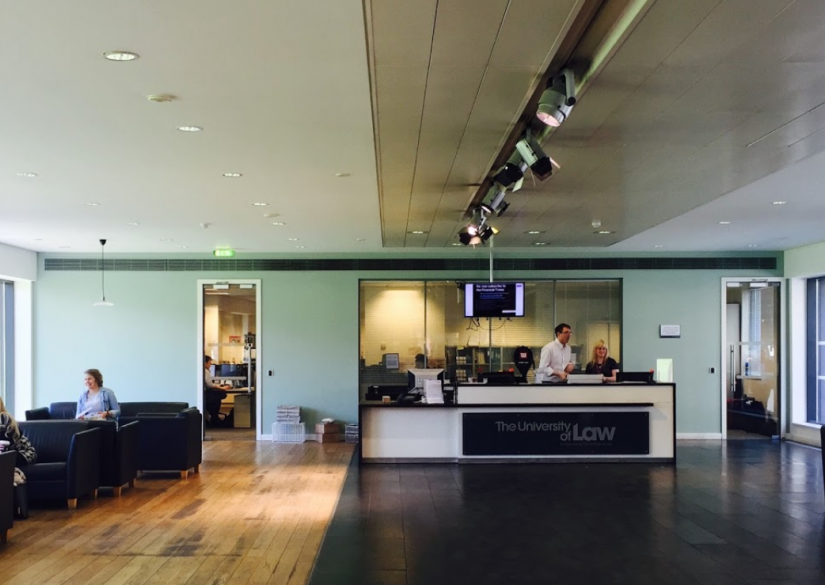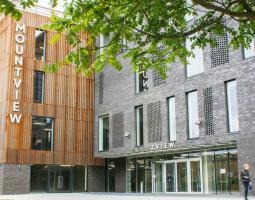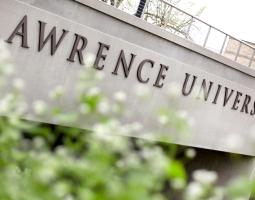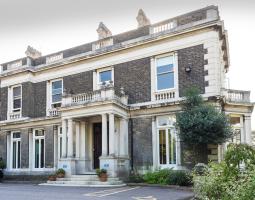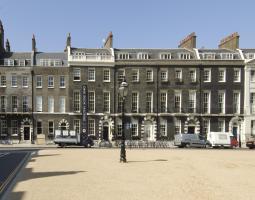University of Law
Programs and prices, tuition fees in University of Law
Directly at the university students can receive a bachelor's degree in the following specialties and areas:
- Bachelor of Law (LL.B)
- Professional qualification course for ship lawyers (BPTC);
- Professional Courses (PSC)
- The course of legal practice that produces lawyers, legal advisers, notaries (LPC)
- The diploma on the termination of high school on a specialty "jurisprudence" (GDL).
The business school of the De Broc School of Business provides such bachelor's courses as:
- Foundation year + Foundation BA
- BA (Hons) Business and HR Management
- BA (Hons) Business and Finance
- BA (Hons) Business and Marketing
- BA (Hons) Business Management.
The price depends on the chosen educational program, as well as on the specific city where the campus is located. The term of study is from 2 to 4 years.
At the university the main master's specialty is Master of Laws (LL.M) and Master of Law and Risk Management (MSc). In the business school the following specialties are additionally offered:
- MSc Corporative Financial Management
- MSc International HR Management
- MSc International Mariting
- MSc Strategic Business Management.
The average term of study is 1 year.
International Foundation
- Age – from 17 years old,
- The duration of training is one year.
The International Foundation's preparatory courses are focused on the one-year training of foreign students who are not yet ready for direct admission to undergraduate programs. During the year, they will attend six specialized modules, English lessons and classes aimed at gaining academic skills in a new educational environment for them. Upon successful completion of the course, students enter the bachelor's program in the chosen specialization. Dozens of areas are available to study, including:
- Right
- Law: business,
- International business,
- Criminology
- Investigative journalism,
- Policing, criminal investigations.
MBA Programs
- Age – from 21 years old,
- The duration of training is one to two years.
The University of Law offers two MBA tracks: Business Administration and Technology Leadership. Both programs are available both in-person on campus and online.
The one-year course will include the study of specialized modules, thanks to which students will create an excellent base of in-depth professional knowledge. The two-year course consists of a year of theoretical study, practical training and a year dedicated to professional activities.
Description of University of Law
- Location: United Kingdom (several campuses in different cities)
- Language of instruction: English
- Educational programs: Bachelor's, Master's, MBA
- Duration of the course: Bachelor's degree from 2 to 4 years, Master's degree is 1 year
- Beginning of the courses: September, January, May.
One of the oldest institutions of legal education - the University of Law - opened its doors to students in 1876. Now, its campuses are located in 8 major cities in the UK, giving students the opportunity to choose the most attractive place to study:
- London
- Bristol
- Manchester
- Exeter
- Birmingham
- Chester
- Leeds
- Guildford.
The balanced and effective University of Law programs are aimed at ensuring that students really learn to think like professional lawyers, develop specific thinking and assessment skills. A comfortable, international atmosphere reigns here: special programs for the support of foreign students are developed, everything motivates them to achieve high personal and academic goals.
The big plus of learning here is the presence of a huge number of links with partner organizations. University of Law works with 90 of the best law firms in the UK (totaling 100 titles), as well as 5 of the world's largest law firms. Each teacher not only possesses the required high qualification, but also boasts extensive experience as a judge, barrister or legal adviser. The university was the best among the profile educational institutions in 2014 (according to the British National Student Survey ranking).
The University of Law has an excellent business school, De Broc School of Business, where students can obtain a bachelor's or master's degree in management or business. The quality of education is so high that for students there are even certain guarantees. For example, students of the Legal Practice Course (LPC) who can not get a job in the specialty within 9 months after graduation receive half of the cost paid for tuition back.
There are a lot of well-known and successful personalities among the graduates of the university in the UK who have become famous professionals in their field - it is enough to name the following names:
- Andrulla Wasslieu (former European Commissioner for Culture)
- Sadiq Khan (former Minister)
- Johnny Searle (Olympic rowing champion)
- Charles Falconer (former Lord Chancellor).

What are the currently popular courses at UK universities?
UK universities are known for their diverse subject offerings. Business, medicine, and engineering traditionally see high demand, with growing interest in computer science.
Educational process
If a student chooses to study in an online format, they are given access to an electronic platform with a wide range of services: from a personal account with the ability to track individual progress, video conferences with teachers, chats with classmates to library resources, student clubs, and participation in face-to-face events.
Faculties and colleges
At the University of Law, it is possible to obtain advanced degrees through undergraduate and graduate programs, retraining, online courses, or obtain an apprenticeship certificate. A specialized department has been created for each stage of education.
The main focus of study at the University of Law is law.
Scientific achievements
The University of Law cooperates with the ULTRA Center for Legal Research and actively participates in scientific work. Recently, for example, the efforts of researchers have been focused on the legality of the use of artificial intelligence in legal work.
Accommodation, meals, prices
A special counseling center at the University of Law helps all students, without exception, to find a suitable housing option. It can be a room in a common residence, rented apartment, studio or apartment. There are residences for living directly on the campus (and not only in the city): here the students are offered excellent conditions for work and rest, fully furnished cozy bedrooms, all necessary infrastructure. But please note: guaranteed to receive seats in the campus residence only first-year students, senior students go to places only in the case of free availability.
Subjects, specialties
Activities University of Law
On the campus of the University of Law there is a huge number of clubs, sections and communities: in their free time, each student can find a job for themselves and new like-minded people, which has a beneficial effect on the development of a harmonious personality.
Advantages
- Excellent reputation and high ranking, accreditation from leading educational organizations and agencies
- Professional, qualified teachers with extensive practical experience
- Active implementation of modern and innovative approaches to studying
- A large number of practices enabling to gain valuable experience
- An extensive network of partnerships and cooperation with the best law firms in the UK and the world
- Extensive opportunities for internships, assistance In job placement - the indicator of successful graduates is 98%
- Opportunity to work during study (20-40 hours weekly), which allows you to reduce studying costs
- Reasonable cost, various discounts and scholarships
- Excellently equipped classrooms, well-adjusted University infrastructure, high-speed WI-Fi
- Special programs of comprehensive support for foreign students
- The opportunity to independently choose an attractive place of study: university campuses are located in 8 major developed cities in Britain
- Developed programs for distance learning (online).
Facilities and equipment at University of Law
The University of Law has 20 campuses, 19 of which are for full-time education. Most of the study areas are located in the UK:
- Birmingham
It is located in the Jewellery Quarter, just a short walk from the city center and other universities, making it a great place to study. There is a café on campus, and thanks to excellent transport links and Birmingham Snow Hill railway station, students will be able to reach the sights, entertainment and cultural places of the city.
A distinctive feature of this campus is the presence of a simulated real courtroom, giving students the opportunity to gain hands-on experience and feel part of the legal profession even before their careers begin.
- Bristol
The academic site is close to the city center, where there are many cafes and restaurants, just a short walk from the Bristol Temple Meads railway station – a major transport hub in the area. The campus has workshops that are designed for interactive learning and lecture halls that are small enough for students to be an active part of the learning process and can easily interact with teachers. A large library allows students to have access to online resources, all the legal reports and reviews they may need.
- Leeds
The seven-storey academic building with a spectacular glazed façade, high-quality interiors and a rooftop terrace offering panoramic views of the city's skyline is home to many higher education programmes. It is located on Park Row, one of the most prestigious streets in Leeds, next to the railway station. The town has hundreds of restaurants, cafes, bars and pubs, and the Trinity Shopping Centre, which is just a short walk away, has a wide selection of popular shops, a cinema. Compact lecture halls, studios for self-study, a library, a courtroom in the format of a courtroom - there is everything to gain theoretical knowledge and professional skills.
- London to Bloomsbury
The university's largest learning area, located a two-minute walk from Goodge Street Tube Station, right next to Tottenham Court Road, a street with plenty of shops, bars and restaurants, and bus stops linking the rest of London. There are academic classrooms, courtroom-style rooms, simulated crime scene rooms, computer labs, and a four-story library with a wide variety of self-study resources.
- London to Moorgate
The newly renovated campus is close to tube stations and major rail lines such as Moorgate, Farringdon and Liverpool Street, within walking distance of tube stations. The campus is home to the University's Academy of Legal Technology Research, a technology center for managing legal events, innovations, and innovations. The building has a spacious library spread over two floors, where computers and support staff are always available. Self-study classes, Internet cafes are used for group work, are excellent places for communication outside of seminars and lectures.
- Manchester
The Manchester study area, where both law and business courses are held, is located in the heart of the city, close to leading law firms, Manchester Piccadilly railway station. Campus workshops are where students will spend most of their study time.
- Nottingham
The Nottingham campus offers brand-new, state-of-the-art learning spaces and innovative student spaces. All this is within walking distance of numerous restaurants, theaters, pubs and entertainment venues.
The University of Law shares academic sites with many leading universities in the UK - all classrooms, computer classes, studios and other premises available to students of the partner university are open to students of the law institution:
- Royal Holloway, University of London,
- Newcastle University,
- University of Chester,
- University of East Anglia,
- University of Exeter,
- University of Liverpool,
- University of Reading,
- University of Sheffield,
- University of Southampton.
A few more campuses are located outside the UK:
- The University of Europe for Applied Sciences (UE) – Hamburg, Germany,
- GISMA Business School – Berlin, Germany,
- University of Law – Hong Kong, China.
All territories have a large number of specialized academic premises, studios, self-study areas, cafeterias and libraries with reading rooms, access to electronic databases. High-speed WiFi is available on campuses, and wired internet connections are available in computer labs.
The ULAW online campus is an electronic platform that has a library, chats with all teachers and classmates, contacts of administrative departments, and a personal account where each student can track individual academic progress. Students who choose distance education have access to all student communities, events, and premises on all campuses of the institution.
Admission dates and extra charges
There is an opportunity to pay tuition fees for semesters, and also to receive a grant, a scholarship or a discount on studying (for details, check with your manager). The price is not included and is paid additionally:
- Accommodation and meals (depending on the option chosen)
- Air tickets in both directions
- Transfer in both directions
- Consular fee (payable at the embassy)
- Visa fees and services, translation and certification of documents
- Personal pocket expenses
- Medical insurance.
Enrolment process
Most of the stages of admission are available in an online format, which makes the process easier for international applicants:
- Filling out a detailed questionnaire, providing the required documents,
- Payment of registration fees,
- Passing an interview, possible entrance exams,
- Receiving an invitation to enroll,
- Payment of part or all of the cost of the program,
- Arrival at campus and start of classes.
Perspectives
To date, the number of graduates of the University of Law exceeds 100,000 professionals who have created professional careers in the UK and abroad. In recent years, university graduates have achieved excellent results in the field of employment, 94% of them continue their academic path or start a career within 15 months of completing their studies.
If a student has difficulties finding a job or entering the next level of education, the University of Law provides discounts from 50 to 100% on advanced training courses or refunds the cost of the program already completed.
Entry requirements, how to apply, what is required to enrol
The basic requirement, of course, is a fairly high level of English: Bachelor's entrants must show scores 6.0-7.0 on the IELTS scale, and applicants for master's programs - 6.5-7.5.
Scholarships University of Law
The university's scholarship fund (more than three million pounds) awards students who are particularly outstanding in studying, sports, volunteering and other extracurricular activities. Partner organizations also offer a range of external scholarships and grants based on need or merit.
Some scholarship programs:
- The Lord Blunkett Award, awarded to undergraduate and postgraduate students,
- The Sadiq Khan and Baroness Warsi Success Awards, given to cover legal fees to successful students,
- Scholarships for students of the Faculty of Business and Law,
- Career Changer Scholarships for those returning to their studies to retrain.
Due to the fact that the University of Law is a branch of NUS, its students have access to Totum cards, which provide more than 200 discounts on a variety of goods and services throughout the country and more than 1000 around the world.
Literature and references
-
University of Law — Wiki
-
The University of Law: Rankings, Fees & Courses Details — Top Universities
-
Law Rankings 2024— Complete University Guide
-
World University Rankings 2024 by subject: law — Times Higher Education
-
The University of Law — Ranking & Student Reviews — Uni Compare
-
The University of Law Ranking & Overview 2024 — uniRank University Ranking
Institution on the map
Residence permits, citizenship and other services
- Guardianship services during the studies
- Student supervision
Review about University of Law
Recommendations on when to apply
| Language courses, schools and children's language camps | Primary and secondary education - private schools | Preparation programmes for entering universities - higher education | Higher education (after completing accredited programs A-level, IB, High School) - Bachelor, Master, MBA |
| - we recommend to apply 6-9 months before the start of the course (some camps and schools offer discounts for early booking or for lengthy study programs) - there are some very popular and high demand children's camps, where the applications need to be submitted 1 year in advance (in particular Switzerland , Great Britain , USA , Canada , Austria) | - we recommend to apply one year before the start of the training program, - some schools have a specific time frame (September-November - please specify an individual school) - some schools require tests in several stages (UKISET, internal tests of the school: English, mathematics, logics, subjects, interview, some require a personal visit) | - we recommend to apply one year before the start of the program, - for Foundation and Pathway programs, IELTS and TOEFL certificates are usually required, respectively | - recommended submission one year before the start of the program, - the deadline normally closes in January, for TOP HEIs and, as a rule, in March in other universities - for a bachelor, a Foundation or Pathway preparatory program a completed A-level, IB, High School + IELTS / TOEFL are required - for Masters you need a graduated higher education, in some cases you need a pre-Masters program - MBA requires completed higher education, work experience preferably at least 2-3 years, etc. |



